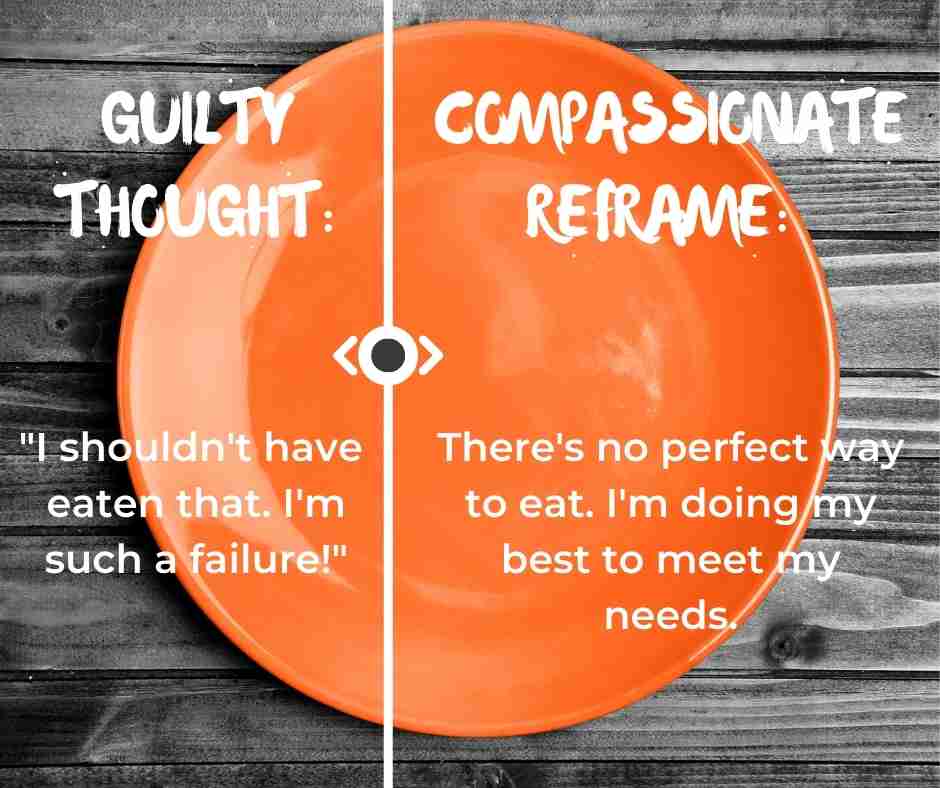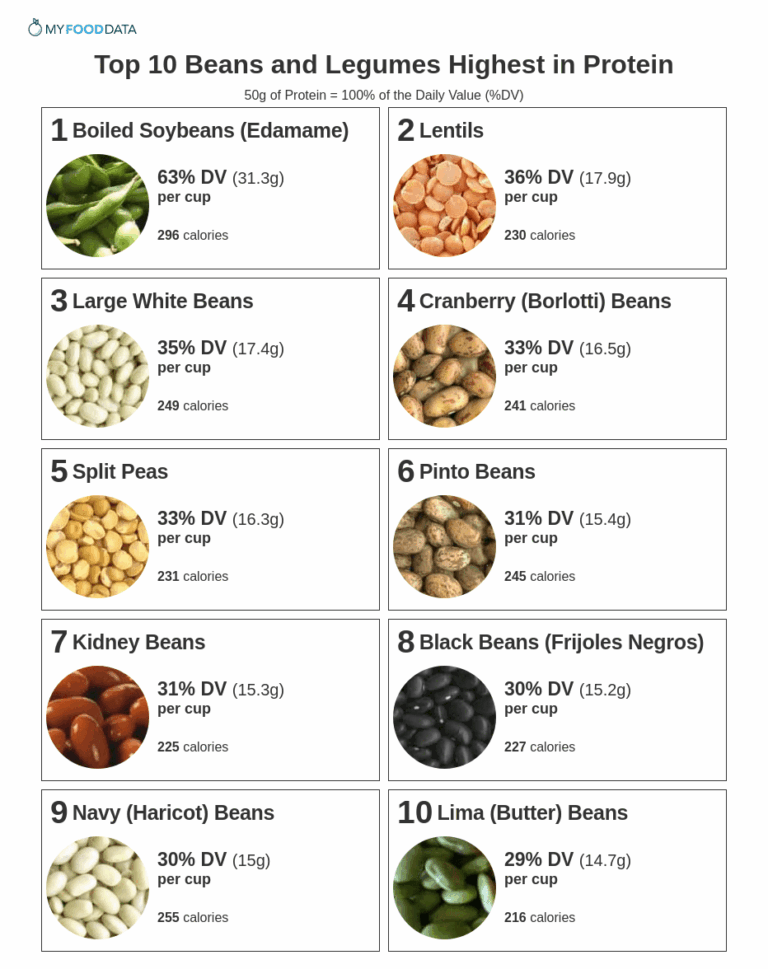From Guilty to Good: Reframing Your Thoughts Around Food
The plate before us, often a canvas of sustenance and joy, can, for many, become a battleground. Each morsel weighed not just by its caloric content, but by the heavy scales of judgment, shame, and regret. We live in a world obsessed with food, yet paradoxically, a world where our relationship with it is often fraught with anxiety. From the moment we awaken to the silent, insistent whispers of diet culture, to the late-night internal debates over a harmless snack, the modern human experience is deeply entwined with a complex, often toxic, narrative around eating.
This is not merely about what we eat, but how we think about it. It’s about the internal monologue that accompanies every meal, the labels we assign, and the self-worth we inadvertently tie to our dietary choices. For far too many, food is not a source of nourishment or pleasure, but a source of profound guilt. This pervasive, often debilitating emotion can overshadow the simple act of eating, turning it into a minefield of self-recrimination. But what if we could shift this paradigm? What if we could move from a place of chronic self-judgment to one of acceptance, enjoyment, and genuine well-being? This article is a journey towards that liberation – a path from guilty to good, by deliberately and compassionately reframing our thoughts around food.
The Pervasive Nature of Food Guilt: A Silent Epidemic
Imagine Sarah, a successful professional, meticulously planning her meals, counting macros, and exercising diligently. Yet, the moment she succumbs to a slice of birthday cake at a colleague’s celebration, a wave of self-loathing crashes over her. The joy of the moment vanishes, replaced by a visceral sense of failure, a promise to "do better tomorrow," and an internal tally of damage control. Sarah’s experience is not unique; it is the lived reality for millions.
Food guilt is more than just a fleeting feeling of regret; it’s a deeply entrenched emotional response often characterized by shame, self-blame, and anxiety following perceived "bad" food choices. It’s a relentless inner critic, judging every bite, every craving, every deviation from an often-unrealistic ideal. This guilt is a thief, stealing the pleasure from eating, distorting our body image, and ultimately, diminishing our overall quality of life. It’s a silent epidemic, often masked by outward appearances of control, yet corroding our inner peace.
The insidious nature of food guilt lies in its cyclical pattern. It typically begins with restriction, driven by a desire for control or weight loss. This restriction often leads to deprivation, which inevitably triggers intense cravings or binge eating. The subsequent act of overeating, or even simply eating a "forbidden" food, then ignites the fuse of guilt and shame. This negative emotion, in turn, fuels further restriction or compensatory behaviors, tightening the cycle’s grip. This isn’t just about food; it’s about a fundamental breakdown in our relationship with ourselves, where our inherent worth becomes contingent upon our dietary adherence.
The Roots of Guilt: Unearthing the Origins of Our Food Narrative
To truly reframe our thoughts, we must first understand where these thoughts originated. Food guilt is not an innate human emotion; it is learned, absorbed, and reinforced by a multitude of internal and external factors.
1. Societal Pressures and Diet Culture: We are immersed in a culture that constantly bombards us with messages about "good" and "bad" foods, ideal body types, and the moral superiority of certain eating habits. From magazine covers touting rapid weight loss to social media influencers promoting restrictive diets, the narrative is clear: thinness equates to health, discipline, and success. Food is not merely sustenance but a moral battleground. Vegetables are "virtuous," while desserts are "sinful." This black-and-white thinking, propagated by diet culture, instills a deep-seated fear of "bad" foods and an intense guilt when we inevitably consume them. We internalize the idea that our worth is tied to our appearance and our ability to control our appetite, leading to constant self-surveillance and judgment.
2. Personal History and Early Influences: Our formative years play a significant role in shaping our relationship with food. Perhaps as children, food was used as a reward or punishment, creating an early association between eating and emotional regulation. Comments from parents, relatives, or peers about our bodies or eating habits, however well-intentioned, can leave lasting scars. Growing up in a household where dieting was a constant topic, or where certain foods were strictly forbidden, can imprint a scarcity mindset and an unhealthy moral framework around eating. These early experiences often become the blueprint for our adult food narratives, subtly influencing our reactions to different foods and our internal dialogue.
3. Internalized Beliefs and Personality Traits: Beyond external influences, our individual psychological makeup contributes significantly. Perfectionism, for instance, can lead to an all-or-nothing approach to eating, where one deviation from a strict plan is perceived as utter failure. Black-and-white thinking, common in those prone to guilt, prevents us from seeing the nuance and flexibility required for a healthy relationship with food. Low self-esteem can manifest as a desperate need for control over one’s body, viewing food choices as the only domain where one can exert power. Furthermore, a propensity for self-criticism, often stemming from deeper insecurities, fuels the guilt cycle, turning minor dietary slips into major moral failings.
4. The Science of Guilt and Its Impact: This isn’t just psychological; it’s physiological. When we experience guilt or shame, our bodies react. The stress response system (fight-or-flight) is activated, flooding our bodies with cortisol and other stress hormones. This chronic stress can disrupt digestion, impair immune function, and contribute to inflammation. The prefrontal cortex, responsible for rational thought and decision-making, can be less effective under stress, making it harder to break free from impulsive or emotional eating patterns. This creates a vicious feedback loop: guilt leads to stress, which impairs self-regulation, leading to more "unwanted" eating, which then reinforces guilt.
The Destructive Cycle: How Guilt Keeps Us Trapped
The narrative of food guilt is a tragically predictable one, unfolding in a series of self-sabotaging acts:
- The Vow of Restriction: Driven by the desire to "be good" or compensate for past "failures," we embark on restrictive diets. We cut out entire food groups, meticulously track every calorie, and adhere to rigid eating schedules. The initial feeling is often one of control and accomplishment, a fleeting sense of power over our bodies.
- The Inevitable Cravings and Deprivation: The human body and mind are remarkably resilient, but they also abhor deprivation. Restriction, particularly of beloved foods, leads to intense psychological and physiological cravings. Our bodies, sensing a scarcity, ramp up hunger signals, while our minds obsess over the forbidden. The mental energy expended to resist these urges is enormous and ultimately unsustainable.
- The Breaking Point: Bingeing or Overeating: Eventually, the dam breaks. Whether it’s a planned "cheat meal" that spirals out of control, an impulsive dive into a bag of chips after a stressful day, or simply eating a larger portion than intended, the restriction gives way. This is often fueled by emotional distress, boredom, or sheer exhaustion from constant vigilance. The act itself might bring momentary relief, a temporary silencing of the insistent cravings.
- The Crash: Guilt, Shame, and Self-Loathing: The immediate aftermath is a tidal wave of negative emotions. Guilt washes over us, heavy and suffocating. Shame creeps in, making us feel unworthy and weak. The internal critic roars, berating us for our lack of willpower, our perceived failure, and our inability to control ourselves. This is often accompanied by physical discomfort, bloating, or lethargy, further cementing the negative association.
- The Punishment and Renewed Restriction: To atone for the "sin," we often resort to punitive measures. This might involve excessive exercise, stricter dieting, skipping meals, or even self-harming thoughts. This "punishment" phase reinforces the idea that we are inherently flawed and need to be controlled. And so, the cycle begins anew, each rotation deepening the grooves of guilt and making escape seem increasingly impossible.
The consequences of this cycle extend far beyond our plate. It impacts our mental health, leading to increased anxiety, depression, and obsessive thoughts. It damages our physical health, contributing to digestive issues, hormonal imbalances, and a fluctuating metabolism. It erodes our self-esteem, isolates us socially, and prevents us from experiencing true joy and freedom in our lives. The constant battle with food becomes a battle with ourselves, and one we are perpetually set up to lose.
The Turning Point: Acknowledging the Problem and Embracing the Desire for Change
For many, the journey from guilt to good begins with a simple, yet profound, realization: "I am tired of this." It’s the moment the exhaustion of the endless cycle outweighs the perceived benefits of control. Perhaps it’s a quiet evening when the thought of another diet plan feels utterly soul-crushing, or a moment of witnessing someone else enjoy food effortlessly, sparking a flicker of longing for that same peace.
This turning point is not about finding a new diet; it’s about acknowledging that the current approach is unsustainable and detrimental. It’s the first courageous step towards self-compassion, the recognition that we deserve better than a life dictated by food guilt. This is where awareness becomes paramount. We start to observe our thoughts without judgment, noticing the patterns, the triggers, and the emotional responses that food evokes. This detached observation, rather than immediate reaction, creates a tiny space – a crucial gap – where change can begin to take root. It’s an act of radical self-acceptance, an invitation to step off the hamster wheel and explore a different path.
Reframing Strategies: Tools for Transformation
The journey from guilt to good is an active process of dismantling old thought patterns and building new, healthier ones. It requires patience, persistence, and a willingness to be kind to ourselves. Here are powerful strategies to help reframe your thoughts around food:
1. Cultivating Mindfulness and Mindful Eating
Mindfulness is the practice of paying attention to the present moment without judgment. Applied to eating, it means engaging all our senses, slowing down, and noticing the nuances of our food and our body’s responses.
- The Practice: Before you eat, pause. Take a few deep breaths. Look at your food – its colors, textures, how it’s arranged. Smell it, noticing the aromas. As you take the first bite, chew slowly, savoring the flavors. Notice the texture in your mouth. Pay attention to your body’s signals: are you truly hungry? What does satiety feel like? When do you feel satisfied, not just full?
- The Story: Eleanor, perpetually rushed, used to wolf down her lunch at her desk, barely tasting it. Her guilt would often kick in later, fueled by the feeling that she hadn’t truly "eaten," even though the food was gone. One day, she decided to eat a simple apple mindfully. She noticed its crispness, the tart-sweet burst of flavor, the satisfying crunch. For the first time, she felt truly nourished by a single piece of fruit, not just physically but emotionally. The act of mindful eating transformed a potentially guilt-inducing snack into a moment of pure, unadulterated pleasure and presence.
- The Benefit: Mindful eating breaks the automatic, often unconscious patterns of emotional or habitual eating. It fosters a deeper connection with our bodies, allowing us to tune into genuine hunger and fullness cues, rather than external rules or emotional triggers. It transforms eating from a mechanical act into an experience of sensory richness and self-awareness.
2. Challenging Black-and-White Thinking: Embracing Food Neutrality
Diet culture thrives on labeling foods as "good" or "bad," "clean" or "dirty." This binary thinking creates an unnecessary moral burden on food choices.
- The Practice: Actively dismantle these labels. Understand that food is energy, nutrients, and pleasure. No single food is inherently "good" or "bad." A slice of cake provides energy and enjoyment; a salad provides vitamins and fiber. Both can be part of a balanced diet. Focus on the overall pattern of your eating, rather than individual food items. Ask yourself: "What function does this food serve for me right now?" (Energy, comfort, celebration, nutrients).
- The Story: Mark grew up believing that bread was "bad" and pasta was "the enemy." He constantly felt guilty after eating either. Through conscious effort, he began to challenge these ingrained beliefs. He learned about the nutritional value of whole grains and the cultural significance of pasta. He started allowing himself to eat bread, initially with trepidation, then with curiosity. He discovered that when eaten without guilt, bread didn’t hold the same addictive power. It was just food. The mental freedom he gained was immense.
- The Benefit: Food neutrality strips food of its moral judgment, reducing guilt and anxiety. It fosters flexibility and allows for a broader range of foods to be enjoyed without fear, promoting a more balanced and sustainable eating pattern.
3. Practicing Self-Compassion, Not Self-Criticism
This is perhaps the most crucial shift. Instead of berating ourselves for perceived "failures," we learn to treat ourselves with kindness and understanding.
- The Practice: Drawing from the work of Dr. Kristin Neff, self-compassion involves three components:
- Self-kindness: Treating yourself with warmth and understanding, rather than harsh judgment, during times of suffering or perceived inadequacy.
- Common humanity: Recognizing that suffering and imperfection are part of the shared human experience, rather than feeling isolated in your struggles.
- Mindfulness: Observing your painful thoughts and emotions with openness and clarity, without over-identifying with them.
When you catch yourself feeling guilty about food, pause and ask: "What would I say to a friend in this situation?" "How can I be kind to myself right now?"
- The Story: After a day of emotional eating, Maria would usually spiral into a torrent of self-criticism: "You’re so weak. You’ll never get this right. You’re disgusting." Learning about self-compassion, she tried a new approach. She placed a hand over her heart and whispered, "This is hard. I’m struggling right now, and that’s okay. Many people struggle with this." She allowed herself to feel the sadness without judgment, and then gently considered what she truly needed in that moment, which was often rest, not more food or punishment.
- The Benefit: Self-compassion breaks the destructive cycle of guilt and shame. It allows us to learn from our experiences without becoming trapped in self-blame, fostering resilience and emotional healing.
4. Understanding Emotional Eating and Developing Alternatives
Emotional eating is using food to cope with feelings rather than physical hunger. It’s a common and understandable response to stress, boredom, loneliness, or sadness.
- The Practice: Develop awareness of your triggers. When you feel the urge to eat, pause and ask: "Am I physically hungry, or am I feeling an emotion?" If it’s an emotion, try to identify it. Then, explore alternative coping mechanisms that truly address the underlying need. This might include:
- Stress: Deep breathing, meditation, a short walk, listening to music.
- Boredom: Reading, a hobby, calling a friend, engaging in a creative activity.
- Loneliness: Reaching out to a loved one, joining a community group.
- Sadness/Anxiety: Journaling, talking to a trusted person, crying, engaging in a comforting activity that doesn’t involve food.
- The Story: David often found himself reaching for snacks late at night, despite not being physically hungry. He realized this habit coincided with feelings of anxiety about work the next day. Instead of eating, he started a simple ritual: a warm bath, followed by 10 minutes of journaling about his anxieties. He didn’t always avoid the snack entirely, but the act of acknowledging and addressing his emotions often reduced the intensity of the craving, and the guilt that followed was significantly lessened because he understood its root.
- The Benefit: By understanding and addressing the root cause of emotional eating, we empower ourselves to choose genuine self-care over temporary food-based relief, leading to more sustainable emotional regulation and reduced guilt.
5. Reconnecting with Body Wisdom: Embracing Intuitive Eating Principles
Intuitive Eating, developed by dietitians Evelyn Tribole and Elyse Resch, is a non-diet approach that helps individuals heal their relationship with food and their body. It’s about trusting your body’s innate wisdom.
- The Practice (brief overview of key principles):
- Reject the Diet Mentality: Let go of the belief that diets are the solution.
- Honor Your Hunger: Eat when you’re hungry.
- Make Peace with Food: Give yourself unconditional permission to eat.
- Challenge the Food Police: Silence the internal critic.
- Discover the Satisfaction Factor: Find pleasure and enjoyment in eating.
- Feel Your Fullness: Stop eating when you’re comfortably full.
- Cope with Your Emotions with Kindness: Develop non-food coping skills.
- Respect Your Body: Accept your natural body shape.
- Movement – Feel the Difference: Engage in joyful movement, not punitive exercise.
- Honor Your Health – Gentle Nutrition: Make food choices that honor your health and taste buds.
- The Story: Isabella had spent decades on diets, convinced her body couldn’t be trusted. Through working with an intuitive eating coach, she slowly began to re-learn her body’s signals. She started with honoring hunger, eating a meal when her stomach rumbled, rather than waiting for a prescribed time. Gradually, she practiced feeling fullness, stopping before she felt stuffed. It was a bumpy road, filled with moments of doubt, but over time, she found a profound sense of trust and autonomy she’d never experienced before. Food became a source of nourishment and pleasure, not control.
- The Benefit: Intuitive eating liberates you from the diet-binge-guilt cycle, fosters body respect, and cultivates a truly peaceful and sustainable relationship with food, where food choices are guided by internal cues rather than external rules.
6. Cognitive Restructuring: Interrogating Your Thoughts
Cognitive Behavioral Therapy (CBT) techniques can be adapted to challenge and reframe specific negative thoughts about food.
- The Practice:
- Identify the Automatic Negative Thought (ANT): When you feel guilt, pinpoint the exact thought. (e.g., "I ate that cookie, I’m so weak," or "This meal is too unhealthy, I’ve ruined my day.")
- Question its Validity: Is this thought 100% true? Is there another way to look at this? What evidence do I have for and against this thought? Is this thought helpful?
- Reframe to a More Balanced Thought: Create an alternative, more realistic, and compassionate thought. (e.g., "Eating one cookie doesn’t define my strength; it was a moment of enjoyment, and I can continue to make nourishing choices," or "This meal provides energy, and one meal doesn’t ‘ruin’ my entire day or health.")
- The Story: Whenever Emily ate pizza, her internal monologue would scream, "You’re going to gain weight! You’re so irresponsible!" She started writing these thoughts down. Then, she’d challenge them. "Is one slice of pizza truly going to make me gain significant weight? No. Is it irresponsible to enjoy food? No, it’s normal. What’s a more helpful thought?" She began replacing it with: "I’m enjoying this pizza. Food is meant to be enjoyed, and it fits into a balanced life." This conscious effort, over time, diminished the power of the old, guilt-ridden thought.
- The Benefit: Cognitive restructuring directly addresses the thought patterns that fuel guilt, giving you the power to actively reshape your internal narrative and foster more constructive self-talk.
The Journey, Not the Destination: Embracing Imperfection
It’s vital to understand that reframing your thoughts around food is a journey, not a destination. There will be good days, and there will be challenging days. You will undoubtedly experience moments where old guilt resurfaces, where you fall back into old patterns, or where the allure of a new diet seems tempting. These are not failures; they are opportunities for learning, for practicing self-compassion, and for reaffirming your commitment to a kinder relationship with yourself.
The goal is not perfection, but progress. It’s about building resilience, developing self-awareness, and consistently choosing self-kindness over self-criticism. Each time you notice a guilt-ridden thought and gently reframe it, you are strengthening new neural pathways. Each time you choose mindful eating over mindless consumption, you are deepening your connection with your body. Be patient with yourself, celebrate the small victories, and remember that setbacks are an inherent part of any transformative process. Approach this journey with curiosity, not judgment.
Conclusion: Living in Food Freedom
The journey from guilty to good is a profound act of self-liberation. It is about reclaiming your autonomy, your peace of mind, and your inherent right to enjoy food without the shackles of shame. By understanding the roots of food guilt, recognizing its destructive cycle, and diligently applying strategies like mindfulness, food neutrality, self-compassion, intuitive eating, and cognitive restructuring, you can fundamentally transform your relationship with food.
Imagine a life where a plate of delicious food evokes anticipation and pleasure, not anxiety. Where a shared meal with loved ones is a moment of connection, free from internal debates. Where your energy is directed towards living a vibrant life, rather than constantly battling your body or your appetite. This is the promise of food freedom – a life where food is simply food: nourishment, energy, and an occasional source of pure, unadulterated joy.
This transformation isn’t just about food; it’s about reclaiming your mental space, enhancing your overall well-being, and fostering a deeper, more loving relationship with yourself. It’s about stepping out of the shadows of guilt and into the light of acceptance, satisfaction, and peace. Embrace this journey with an open heart and a compassionate mind, and watch as the simple act of eating transforms into a profound act of self-care and freedom. The table is set, and liberation awaits.







